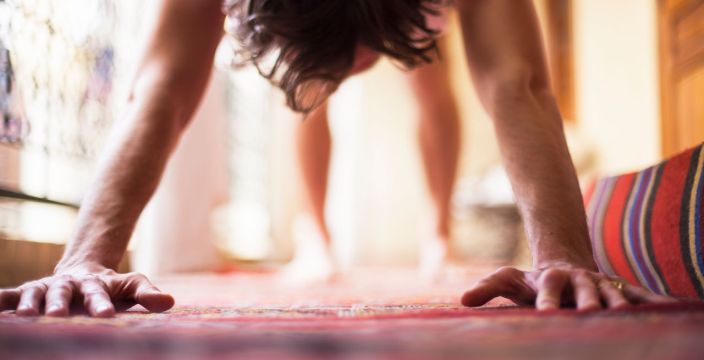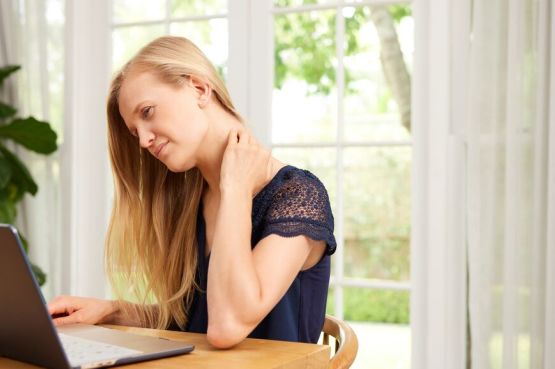Fitness
Keep fit: banish aches and pains as you get older

It might come on gradually as you get older, but one morning you really notice that you can’t leap out of bed the way you used to – at least, not without some pain. Maybe you even feel stiff or sore just getting up from the sofa. Don’t despair, because it’s not inevitable that you’ll always feel this way from now on.
Is it a medical problem?
The first thing to mention is, there are times when joint or muscle pain could indicate a medical problem that needs to be investigated and treated. Use your common sense; if it’s severe, comes on suddenly, or has you worried, see your doctor.
You also need to have it checked out if there is redness or swelling, or if the symptoms last without relief for more than a few weeks. In cases like this, don’t start an exercise programme until you know what the underlying problem is, and you have advice on how to proceed safely.
Is it a natural part of ageing?
Many times though, aching joints and muscles are simply the effects of age. As we get older, the natural tendency is for our muscles to get smaller and lose some of their strength. Our bones also start to get weaker over time. To some degree, you can hold back the years by keeping your muscles, joints and bones strong with regular exercise.
How to carry on being active
If you’re already a keen athlete or dancer, you’ll probably find that you need to slow down and modify your routine as you get older, to reduce the risk of injury. But if you love something, don’t give it up all together. Stay out there and stay active.
Many sporting clubs now have a senior or master’s team for older members, so if the time is right, go for it. Many master’s or veteran clubs have coaches who can help with guidance on appropriate levels of training for your age and fitness. With years of experience, you also have valuable knowledge to offer. Think about coaching, teaching or being a referee.
It’s never too late to get active
Maybe you don’t consider yourself the sporty type, but physical activity can take many forms, and it’s never too late to give it a try. Start from where you’re at now, and you’ll soon feel the benefits.
Get your heart rate up
The UK’s Chief Medical Officers recommend a minimum of 30 minutes of moderate physical activity, at least five days a week. If your activity is vigorous, the minimum is 75 minutes. Think running, exercise classes, swimming, cycling, or even brisk walking. Anything that gets you huffing and puffing gives your heart and lungs a workout. The effects on your metabolism also help to build muscle tissue.
Balance and coordination
As you get older, it’s also important to include exercise that promotes balance and co-ordination. Some examples are cycling and dancing. You’ll find that Pilates, yoga or tai chi also help you stay supple, keeping your joints and muscles more flexible.
Build up your strength
Strength training is crucial for your muscles and bones. To get strong and stay strong, they need to work against a force. Lifting weights will do this for you. So will exercises that use your body weight, such as press-ups or yoga.
All in one sports
Sports like football, rugby, or tennis are great because they tick all three boxes at the same time, providing aerobic, balance and muscle-strength training. Dancing can do this too.
If you’re not sure where to start, have a look at our article on exercise for older people.
And stretch...
Whatever kind of exercise you go for, it is more important than ever to pay proper attention to stretching. This will keep you limber and reduce the risk of injury.
So if you are feeling the years, now is the time to build your bones, joints and muscles with regular exercise. It really is a case of move it or lose it.
About our health information
At Bupa we produce a wealth of free health information for you and your family. This is because we believe that trustworthy information is essential in helping you make better decisions about your health and wellbeing.
Our information has been awarded the PIF TICK for trustworthy health information. It also follows the principles of the The Information Standard.

More thrive articles...
Did you find our advice helpful?
We’d love to hear what you think. Our short survey takes just a few minutes to complete and helps us to keep improving our healthy lifestyle articles.
Legal disclaimer
This information was published by Bupa's Health Content Team and is based on reputable sources of medical evidence. It has been reviewed by appropriate medical or clinical professionals and deemed accurate on the date of review. Photos are only for illustrative purposes and do not reflect every presentation of a condition.
Any information about a treatment or procedure is generic, and does not necessarily describe that treatment or procedure as delivered by Bupa or its associated providers.
The information contained on this page and in any third party websites referred to on this page is not intended nor implied to be a substitute for professional medical advice nor is it intended to be for medical diagnosis or treatment. Third party websites are not owned or controlled by Bupa and any individual may be able to access and post messages on them. Bupa is not responsible for the content or availability of these third party websites. We do not accept advertising on this page.




